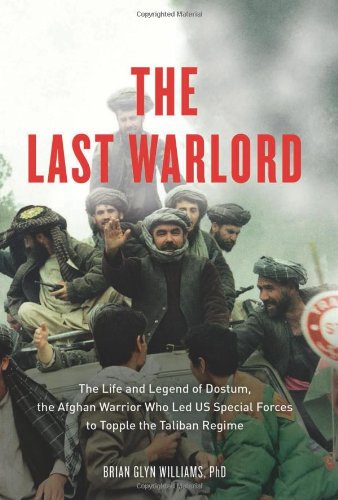

Most ebook files are in PDF format, so you can easily read them using various software such as Foxit Reader or directly on the Google Chrome browser.
Some ebook files are released by publishers in other formats such as .awz, .mobi, .epub, .fb2, etc. You may need to install specific software to read these formats on mobile/PC, such as Calibre.
Please read the tutorial at this link: https://ebookbell.com/faq
We offer FREE conversion to the popular formats you request; however, this may take some time. Therefore, right after payment, please email us, and we will try to provide the service as quickly as possible.
For some exceptional file formats or broken links (if any), please refrain from opening any disputes. Instead, email us first, and we will try to assist within a maximum of 6 hours.
EbookBell Team

0.0
0 reviewsThe Last Warlord tells the spellbinding story of the legendary Afghan warlord Abdul Rashid Dostum, a larger-than-life figure who guided US Special Forces to victory over the Taliban after 9/11. Having gained unprecedented access to General Dostum and his family and subcommanders, as well as local chieftains, mullahs, elders, Taliban prisoners, and women’s rights activists, scholar Brian Glyn Williams paints a fascinating portrait of this Northern Alliance Uzbek commander who has been shrouded in mystery and contradicting hearsay. In contrast to sensational media accounts that have mythologized the “bear of a man with a gruff laugh” who “some Uzbeks swear, has on occasion frightened people to death,” Williams carefully chronicles Dostum’s rise from peasant villager to Uzbek leader and skilled strategist who has fought a long and bitter war against the Taliban and Al Qaeda fanatics that have sought to repress his people. Also revealed is Dostum’s surprising history as a defender of women’s rights and religious moderation.
In riveting detail The Last Warlord spotlights the crucial Afghan contribution to Operation Enduring Freedom: how the CIA contacted the mysterious warrior Dostum to help US Special Forces wage a covert war in the mountains of Afghanistan, how respect and even friendship quickly grew between the Afghan and American fighting men, and how Dostum led his nomadic people charging into war the same way his ancestors had—on horseback. The result was one of the most decisive campaigns in the entire war on terror. The Last Warlord shows that, far from serving as an exotic backdrop for American heroics, it was these horse-mounted descendents of the Mongol warrior Genghis Khan that allowed the American military to overthrow the Taliban regime in a matter of weeks.
With the United States drawing down troops in 2014 and Dostum poised to re-enter the world stage to fight a resurgent Taliban, The Last Warlord is vital to understanding Afghanistan’s warlord culture and how it factors into Afghanistan’s past and future.